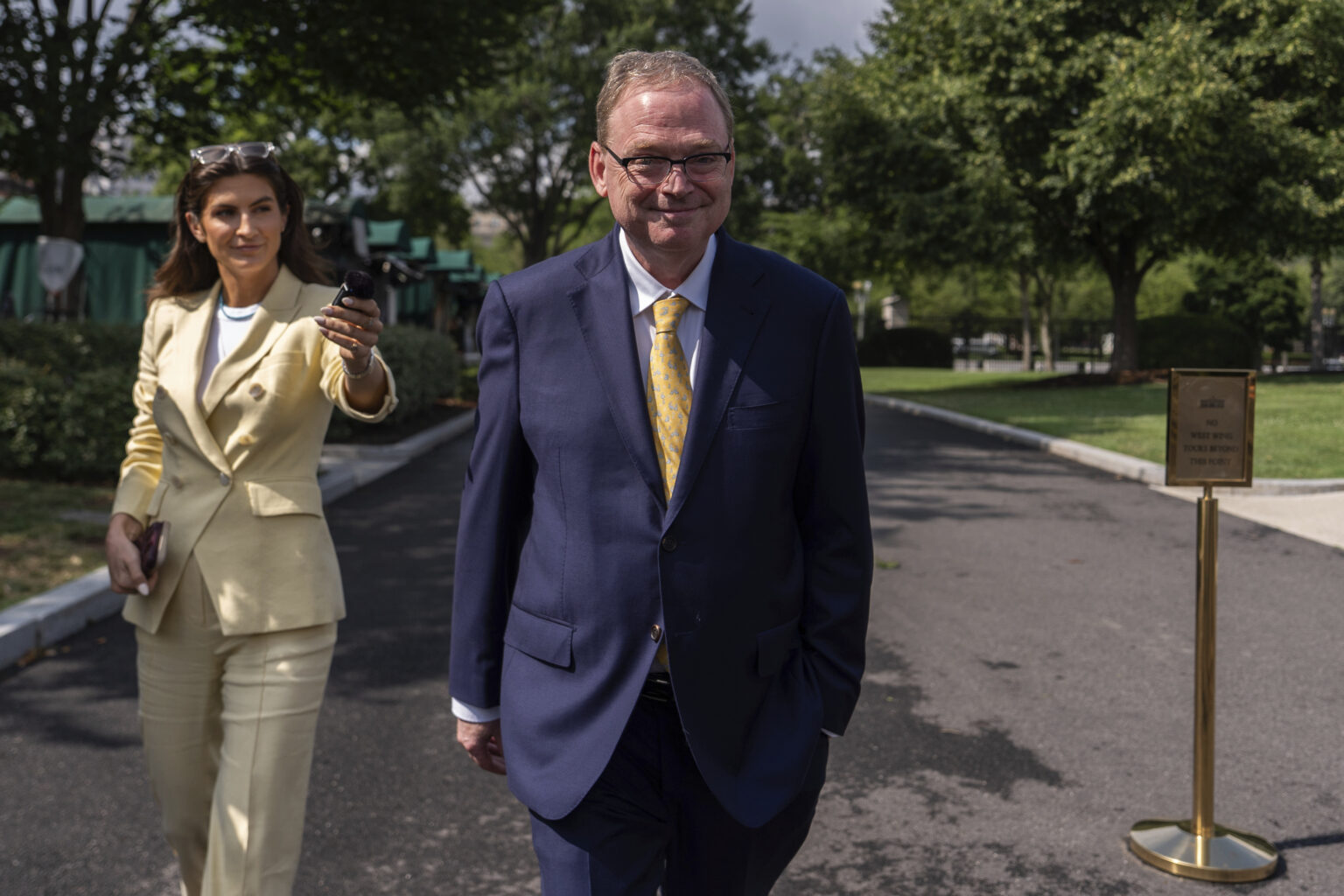Kevin Hassett Emerges as a Leading Candidate for the Federal Reserve Chairmanship
Kevin Hassett, the chief economic advisor to the White House, is increasingly being considered as a prime candidate to succeed Jerome Powell as the head of the Federal Reserve. Sources familiar with internal discussions indicate that President Donald Trump is contemplating appointing a central bank leader who aligns more closely with his economic priorities, particularly his push for lower interest rates.
Uncertain Path to the Top: The Dynamic Selection Process
While the process remains fluid and no final decision has been announced, Hassett’s unique qualifications and political connections give him a notable edge over other contenders. Although not guaranteed, his candidacy is gaining momentum among administration officials and conservative economic circles. The decision is expected to be made in the coming weeks, with some analysts predicting an announcement as early as this month.
Why Hassett Stands Out
At 63, Hassett brings a wealth of experience, having led the National Economic Council and served as a key economic advisor during Trump’s first term. His close relationship with the president, combined with his academic background and ties to influential conservative think tanks like the American Enterprise Institute, bolster his standing. Moreover, Hassett’s reputation as a disciplined communicator and effective media spokesperson aligns with Trump’s preference for officials who can advocate policies confidently in public.
Market Perceptions and Political Considerations
Financial markets are beginning to recognize Hassett’s potential, noting that his loyalty to Trump could be both an asset and a challenge. Experts like Krishna Guha from Evercore ISI highlight that Hassett’s main hurdle will be demonstrating his independence from political influence to maintain the Fed’s credibility. The appointment of a new chair would require balancing the institution’s independence with the president’s desire for accommodative monetary policy.
The Challenges of Political Loyalty and Central Bank Credibility
The next Fed chair will face the complex task of managing monetary policy in an environment where political pressures are increasingly visible. President Trump has publicly criticized Powell, advocating for interest rate cuts and suggesting that the Fed’s independence is secondary to his economic agenda. The new chair must navigate these pressures while preserving the integrity and credibility of the central bank’s inflation-fighting mandate.
Other Leading Contenders and Their Strengths
Hassett’s rivals include former Federal Reserve governor Kevin Warsh, Treasury Department advisor Scott Bessent, and current Fed governor Christopher Waller. Warsh, known for his strong ties to Republican economic circles, has previously been favored by Trump, who once expressed a preference for him over Powell. Bessent, a trusted policy strategist with close connections to Wall Street, is also considered a formidable candidate. Waller, an insider at the Fed, has shown openness to rate cuts and emphasizes his non-political stance, which appeals to market participants seeking stability.
Backgrounds and Policy Perspectives
Hassett’s conservative economic philosophy is rooted in his academic career at Columbia University and his tenure at prominent think tanks. He has been an outspoken advocate for lower interest rates and has supported policies aimed at boosting economic growth. His role in providing economic justification for Trump’s significant tax cuts underscores his influence on fiscal policy. Additionally, Hassett’s ability to communicate complex economic concepts clearly has earned him respect among colleagues and policymakers alike.
Potential Challenges and Political Dynamics
Despite his qualifications, Hassett initially expressed reluctance about taking the Fed role but has since indicated willingness if offered. His recent criticisms of Powell’s monetary policy and the Fed’s infrastructure spending projects suggest a shift toward a more interventionist stance aligned with Trump’s views. The president’s preference for a loyalist who can also maintain market confidence will be a key factor in the final decision.
Implications for the Federal Reserve and the Economy
The appointment of a new Fed chair will have significant implications for U.S. monetary policy, especially amid ongoing economic uncertainties and inflation concerns. The chosen candidate will need to strike a delicate balance: supporting economic growth through accommodative policies while safeguarding the Fed’s credibility in fighting inflation. As the current chair’s term concludes in May, the timing of the announcement remains critical.
Conclusion: A Pivotal Choice for U.S. Monetary Policy
As the debate continues, Kevin Hassett’s candidacy exemplifies the broader debate over the independence of the Federal Reserve versus political influence. With the economy facing evolving challenges, the next Fed chair’s leadership will be pivotal in shaping the trajectory of U.S. monetary policy and ensuring stability in financial markets. The decision will reflect not only the administration’s economic priorities but also the broader confidence in the central bank’s ability to operate independently in a politically charged environment.

